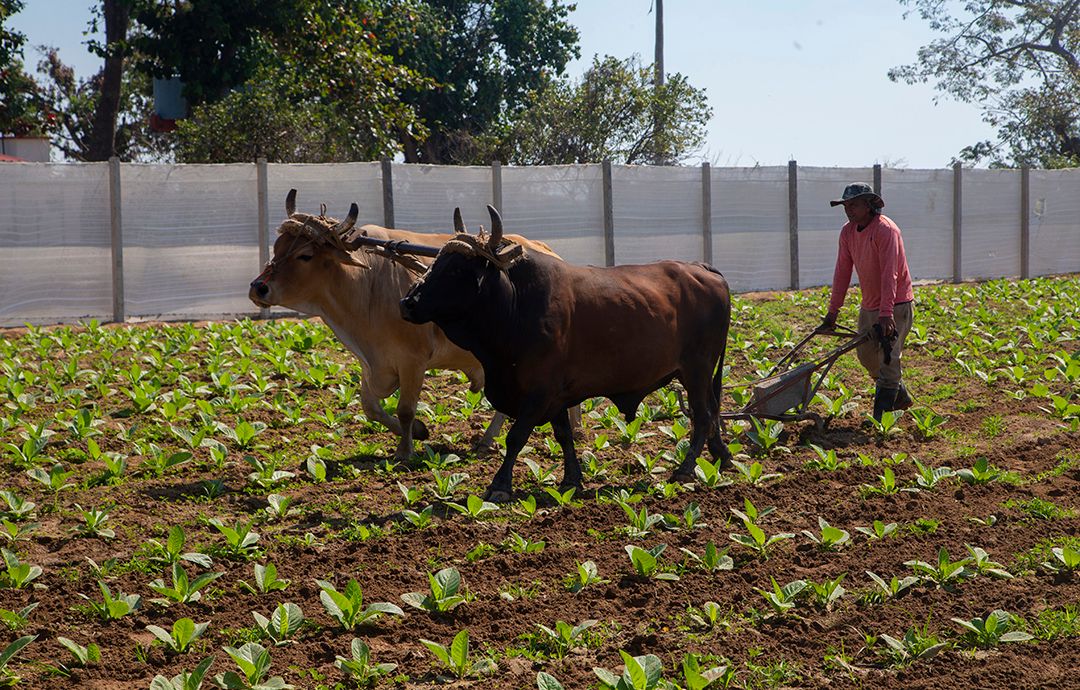Bioinputs: Cuba's response to the shortage of chemical fertilizers
- Written by Yilena Héctor Rodríguez
- Published in Cuba
- Hits: 1342
 Cuban farmers are looking for alternatives to the lack of chemical fertilizers. Cuban soil has known peasant ingenuity for centuries. Where resources are lacking, solutions abound. In recent years, in the face of the crisis in agricultural products such as fertilizers and pesticides, an alternative has emerged in the country that is no longer just an option, but an urgent need: bioinputs.
Cuban farmers are looking for alternatives to the lack of chemical fertilizers. Cuban soil has known peasant ingenuity for centuries. Where resources are lacking, solutions abound. In recent years, in the face of the crisis in agricultural products such as fertilizers and pesticides, an alternative has emerged in the country that is no longer just an option, but an urgent need: bioinputs.
These are products made from living organisms or natural substances that help improve crop yields, protect them from pests and diseases, and nourish the soil without harming the environment. They are bacteria, fungi, plant extracts... but also knowledge, science, tradition and community.
Several local entities and producers produce biofertilizers, biopesticides, and biostimulants as part of the national policy for food sovereignty and sustainable development.
Cubadebate spoke with Dagoberto Rodríguez Lozano, Director of Soils and Fertilizers at the Ministry of Agriculture and head of the Bioinputs Program, about this process, its challenges, progress, and potential.
Dagoberto Rodríguez Lozano, Director of Soils and Fertilizers at the Ministry of Agriculture and head of the Bioinputs Program. Photo: Yilena Héctor Rodríguez/Cubadebate.
How is bioinput production progressing in the country?
* We have a program to consolidate the production strategy, both nationally and locally (Bioinputs Program). The combination of industrial plants and artisanal productions makes it possible to meet farmers' demands, ensuring a minimum of nutrients so that crops achieve a reasonable yield, and alleviating the shortage of chemical fertilizers.
“In this process, biofertilizers, biostimulants, and biopesticides are produced. The former are composed of microorganisms, capable of making available to the plant the nutrients that already exist in the soil or can be fixed from the soil; the latter help crops better withstand adverse conditions, such as water deficit or nutrient shortages; and the third protect them from diseases.
“There are also products that strengthen the natural enemies of pests. These are beneficial insects that are raised in production plants and then protect crops through biological control.
“Today we have eight biofertilizers, six biostimulants, and 23 registered biopesticides, all developed by Cuban research centers.”
He told me that these products have emerged, among other things, to alleviate the shortage of chemical fertilizers. Aren't these chemicals produced in the country?
* Cuba doesn't have its own production of chemical fertilizers: it has always depended on imports, which have been practically nonexistent in the last six years due to a lack of financial resources.
“This situation and the goal of shifting the agricultural landscape toward more environmentally friendly practices have been fundamental drivers of the Bioinputs Program, the foundations of which were fostered since the 1980s.
“This doesn't mean that we completely renounce chemicals or deny their importance, because there are high-yield crops that will always require some level of this type of fertilization to generate good yields in a short period of time.
“But, in practice, chemical fertilizers are not available, but rather bioinputs, which, while not replacing them, allow for sustained production and a move toward healthier and more autonomous systems.”
How has the lack of chemical fertilizers affected production?
* It is undeniable that the yields in tons per hectare of most crops that had high protection, such as rice, have declined by almost 50%. Something similar happened with beans, corn, plantains, and other crops with high potential.
“Around 2018, Cuba received 350,000 tons of fertilizers, with an average fertilization rate of 90 kilograms per hectare, which placed us at an intermediate level worldwide. But that capacity was reduced to zero.
